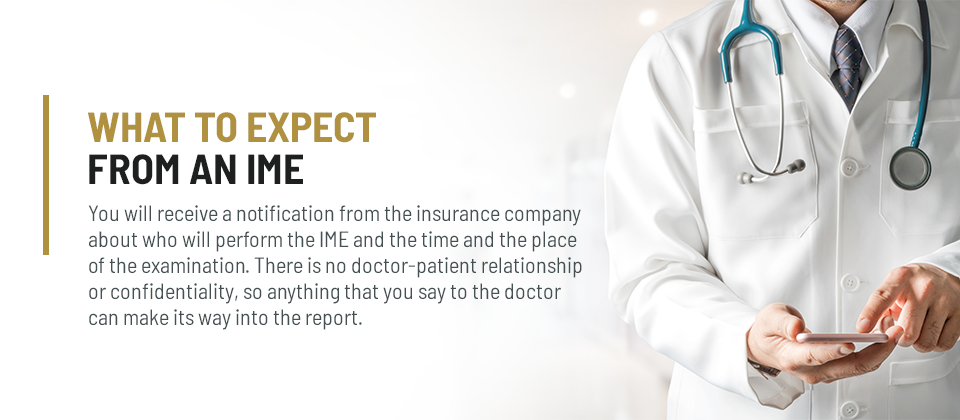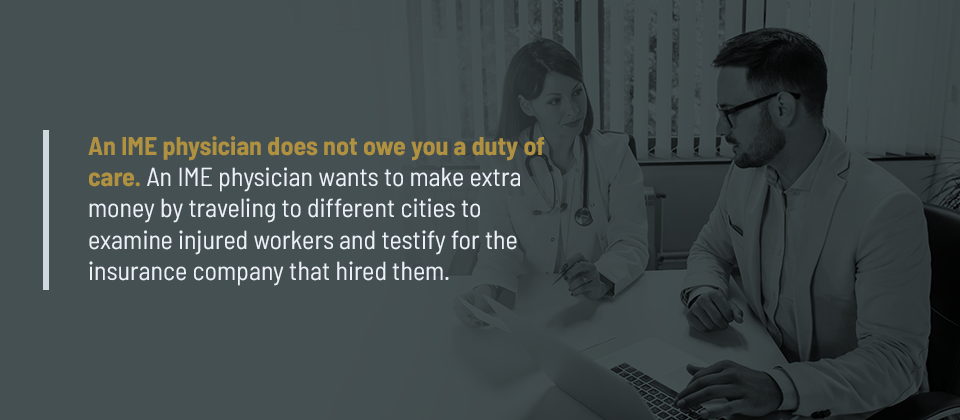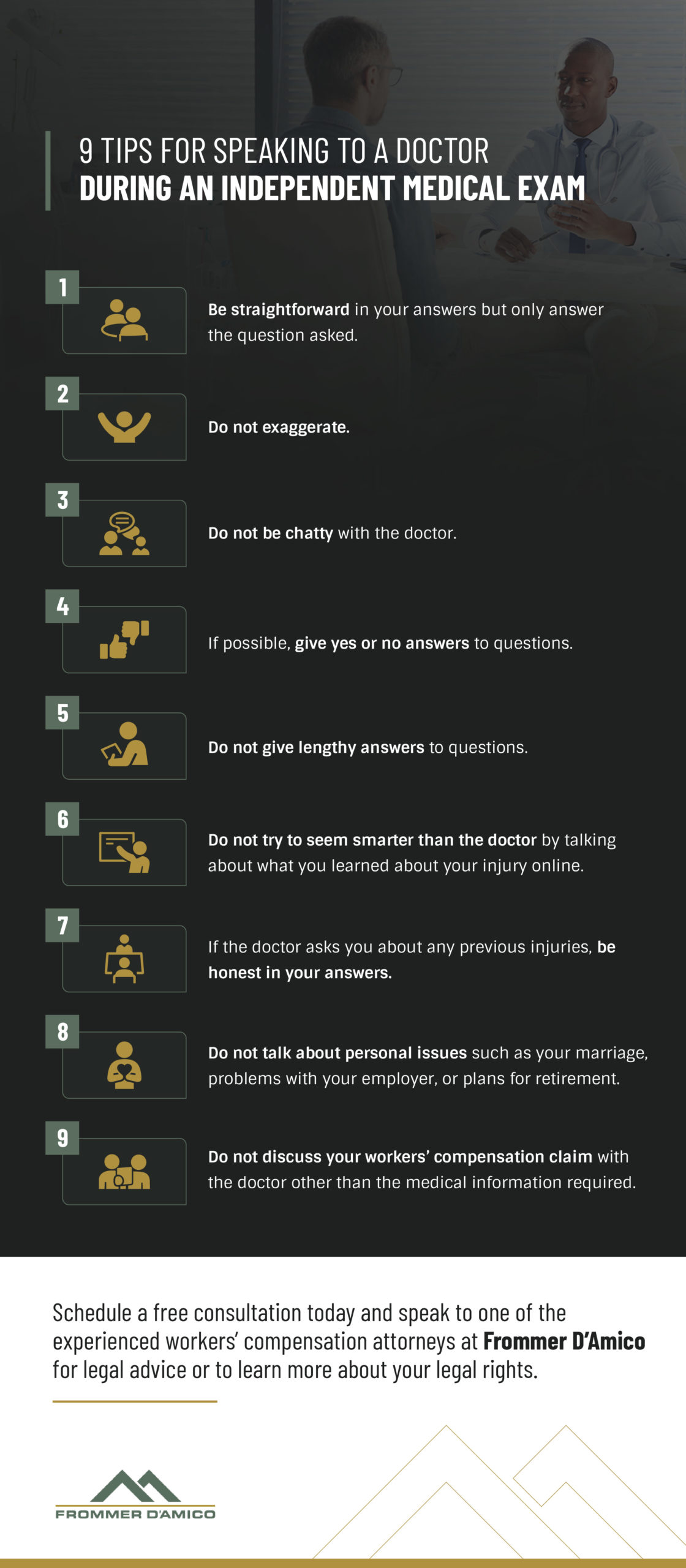Table of Contents
When a worker in Pennsylvania is injured on the job, one of the first things they should do is seek medical attention. Medical care may involve immediate treatment by a staff nurse or a trip to an emergency room. More serious injuries may require more intensive medical procedures.
If the injury is not serious enough for immediate hospitalization, the worker must report it to their employer or to their supervisor within 120 days. In reality, the sooner a worker reports an injury, the better. If the worker was properly served with copy of the Employer’s list of network physicians, the worker must then select a doctor from the panel of six doctors chosen by the employer for the first 90 days of treatment. After 90 days, the injured employee may use their own doctor, although they need to notify their employer’s insurance company that they are switching doctors.
If the employee submits a workers’ comp claim, the employer’s insurance company may ask the injured worker for an independent medical examination (IME). A doctor chosen by the insurance company will perform the examination.
Since an IME partially determines whether an injured worker receives compensation and how much compensation they get, it is crucial to understand what it is and how to prepare for it.
What Is an IME?
An independent medical exam (IME) is a medical evaluation performed by an independent physician — “independent” because they are not involved in the patient’s treatment in any way.
An IME is often requested by insurance companies, employers and lawyers to validate a compensation or disability claim. Sometimes, a workers’ compensation judge may order an exam if they believe it will resolve a medical dispute.
But while an IME is supposed to provide an unbiased diagnosis of the patient and help validate their claim, there are many instances when it causes undue stress to the injured worker instead.
What You Really Need to Know about IMEs
In workers’ compensation claims, an IME requested by the employer or the insurance company employs a physician chosen by the same insurance provider. This means that the exam is not completely independent. It requires you, the aggrieved party, to provide medical proof that you deserve the compensation.
An IME sounds like your usual medical examination, except it is quicker and less thorough. It is usually performed by semi-retired doctors, who will review your medical records, conduct a physical examination and sometimes order additional tests if necessary. In Pennsylvania, any doctor with a current medical license can perform an IME if they maintain a minimum clinical practice.
Unlike regular doctor visits, there is no doctor-patient confidentiality in IMEs. Anything you say during the exam can make its way to the medical evaluator’s report. This may impact your case, especially if the IME physician finds inconsistencies between your claims and medical records.
The goal of the exam is to disprove the injured worker’s claim. However, an IME is standard practice in workers’ comp cases. While it may be disadvantageous to the worker, not adhering to the request may lead to the suspension of your benefits. This is where the help of workers’ compensation lawyers becomes necessary.
Speaking to an experienced workers’ compensation lawyer before undergoing an IME is ideal. It gives you a better understanding of your legal obligations and rights. It also serves to help protect you and your claim.
At Frommer D’Amico, our lawyers will guide you through the entire process. Our legal experts will advise you on what to expect and what to do before an IME.
How To Prepare for An IME
Before you attend an IME, there are several things that you can do to feel more confident and relaxed:
- Review your entire medical history. Include any past injuries.
- Review the details of your workplace accident and how it happened.
- Think about the ways that you were injured, including all parts of your body that were hurt.
- Consider how the pain from these injuries affects your daily activities. It’s important to be specific. Describe the way the pain affects you throughout the day. It may make it hard for you to get out of bed in the morning or difficult for you to go to sleep at night.
- Prepare a complete list of all medications related to your workplace injury.
- Think about how these injuries have changed your life. What are you no longer able to do? How has it affected your family and your friends? Has it changed your relationship with your coworkers?
- Equally importantly, it is perfectly OK, and expected, to be clear about activities that do NOT hurt, or activities that you CAN do, or can do in moderation. Do NOT exaggerate, most doctor’s know it when they see it.
Write out the answers to these questions. Go over them two or three times before you attend the examination. Don’t take the answers with you, or else you will look too rehearsed. Reviewing the summary before your visit will help you give precise answers and prepare you for any probing questions.
What Happens During an IME?
It’s important to remember that you are not asked to attend an IME to receive a second opinion about your injuries. The purpose of an IME is for the insurance company to gather information from an expert to determine whether to award or deny you workers’ compensation benefits. An IME does not constitute any form of medical treatment. Even if an IME doctor advices you on treating your injuries, you are not obliged to follow it.
Under Pennsylvania law, an insurance company can only ask you to submit to an IME twice a year. The IME doctor will receive all relevant medical information before the examination. The insurance company often includes a letter that requests the doctor to examine you for a specific reason:
- Have you been properly diagnosed by your doctor?
- Is a work-related incident or job-related exposure to toxic chemicals responsible for your medical condition?
- Will you require additional medical treatment?
- Do you have a partial or permanent disability?
- When will you be able to return to work and will you need any medical restrictions when you do?
As you can see, an IME plays a vital role in determining the outcome of your workers’ compensation claim.
What The Doctor Looks For
While an IME doctor will review all the relevant medical records connected to your work-related injury, they will also consider several other factors during the examination, including:
1. Your General Appearance
The doctor will watch everything that you do not only during your IME, but also before and after you leave their office. How do you look when you walk into the office? Is it different from the way that you walk into the examination room or when you walk across the parking lot? Do you have difficulty getting on the examination table or do you jump right up on it? How did you dress?
Basically, the doctor is watching for anything that will give them clues that they believe are relevant to your work-related injury.
2. Deception
An IME doctor looks particularly hard for signs of deception. If you exaggerate your injuries or act differently in the waiting room than in the examination room, the doctor will report that to the insurance company. Sometimes, the insurance company will look at your social media posts to see if your statements to the doctor are different from the activities that you or your friends post online. Or, you could be under surveillance before and after an IME exam, again to see if your statements to the doctors are consistent with your daily activities.
3. Review of Medical Records
The IME doctor will review your doctor’s records and any objective medical records including x-rays, CT scans, MRI reports or anything similar. This will help them determine if there are any “objective” signs of an injury related to your workplace accident. The doctor will then evaluate if the way you describe your injuries matches the evidence from your medical reports.
4. The Examination
An IME doctor will normally ask you to perform a series of tests that indicate the amount of pain, sensitivity and discomfort you experience. The doctor may ask you to perform several tests affecting the injured area to see if your reports of pain are consistent.
5. Past Medical History
The doctor may ask you about your medical history, including any accidents or injuries before or after your work-related incident. The doctor will also question you about your lifestyle.
During an IME the doctor is on the lookout for any reason to tell the insurance company that you are not injured as severely as you claim to be.
Tips for Your Independent Medical Examination
Here are some tips to follow in preparation of and during your IME:
- Prepare an outline to help you give consistent answers to the doctor’s questions.
- You are not required to drive yourself to your appointment. If you have difficulty driving and a family member or friend cannot bring you, the insurance company will usually provide transportation.
- Try to arrive at least 15 minutes early for the examination. If you arrive late for any reason, this will be reported by the doctor.
- Dress neatly and professionally.
- Provide an accurate description of your job and your duties.
- Remember, you are under observation by the doctor and their staff from the moment you arrive in the parking lot until the moment you leave. If you run from your car to the office building or do so after you leave but when you’re in the examination room you limp, this will be noted by the doctor.
- Remember that you may be under surveillance before and after the IME exam.
- If you are asked to sign or fill out any forms during an IME visit, ask for copies. Many doctors do not keep copies of these cases. You may need to keep your own for a future workers’ compensation claim.
- Record impressions as soon as possible as a next step after IME examination. Write down how you think it went, the questions asked and the behavior of the doctor and their staff. Having a record of what happened may help your workers’ compensation attorney argue that the doctor was antagonistic against you from the beginning.
How Can an IME Impact My Workers’ Comp Case?
An IME physician does not owe you a duty of care. An IME physician wants to make extra money by traveling to different cities to examine injured workers and testify for the insurance company that hired them. They are often paid about $1000 for the exam and a written IME report. They are usually paid around $3000 to testify against you in court for the insurance company. In our opinion, there is a clear financial incentive for the physician to say something that favors the insurance company. That is, they get paid a lot of additional money when they testify against an injured worker. They only testify when they say something that favors the insurance company.
IME physicians commonly say that an injured worker is fully recovered from a work injury even while the worker is still treating or needs surgery. IME physicians frequently say that an injured worker should return to heavy work that the treating physician has recommended against.
What Happens After a Workers’ Comp IME
After the doctor has conducted the IME, they’ll write a report detailing the results. It will address concerns noted by the insurance company, such as whether you can perform certain activities. If the insurance company plans any legal action, your IME lawyer will receive a copy of this report, as will the judge if your case goes to court.
Often, judges give the opinions of the IME doctor significant weight, and sometimes more than those from the treating physician. IME doctors are supposed to be independent and objective, but that’s not always the case. Still, we always advise our clients to be honest during the IME and perform the tests to the best of their ability.
How Will an Unfavorable IME Impact My PA Workers’ Comp Case?
You, or your lawyer, can challenge the findings of an IME, such as when:
- An IME includes information about your health history that’s incorrect: You can send a letter to the insurance company pointing out the false information and asking for an addendum or clarification. If you have evidence to support your point, such as documentation from a previous appointment, submit that as well. If you have a lawyer, they can address the IME mistakes in Court.
- An IME is used to limit your workers’ compensation benefits: Your lawyer can fight this in Court.
- The physician conducting the IME is not qualified: In PA, an IME doctor must have a license from the Commonwealth and be in active clinical practice at least 20 hours each week. They also must have certification from an American Board of Medical Specialties-certified board. Those are the minimum qualifications. Our lawyers often research the doctor and their specialty to diminish the weight of their opinions if they are not entirely qualified.
While these instances do not occur every time, you should investigate ways to fight the IME if you feel that it’s inaccurate. An experienced workers’ compensation attorney can offer the insight and guidance you need in this case.
Must I Attend an IME Exam in Pennsylvania?
Yes. If you decline to go to an IME, your insurance company may file a petition to stop any workers’ comp benefits you receive. They can also request an order from a judge to force you to attend.
Why Am I Required to Attend an IME?
Here is what you need to know: If you refuse to attend an IME, the insurance company may hire a lawyer to take you to court to stop your benefits. Your benefits should not be stopped without a hearing.
You are obligated to attend an IME up to twice per year so long as the exam is at a reasonable place and time. That is, they cannot make you travel hundreds of miles or appear for the exam at midnight. If you have an IME and have a question about how far you must go from your area, feel free to call us. The answer commonly depends upon where you live and how rural the area is from major medical centers.
A notice of an IME often asks you to drive around and collect all of your medical records and films. You are not required to do that. Your only requirement is to appear at the place and time of the exam and cooperate. You may ask for the insurance company to provide transportation. However, do not discuss your case, daily activities or medical condition with the driver.
You may provide your own transportation and request mileage reimbursement for travel. If you lose time from work for the exam, you may ask for wage loss benefits for losing wages to attend the exam. On the day of the exam, you may be under surveillance before or after the exam.
What Should I Tell the Doctor During an IME?
If there is one good piece of advice about speaking to a doctor during an IME it’s stick to the facts:
- Be straightforward in your answers but only answer the question asked.
- Do not exaggerate. Do not overemphasize your injuries during the examination.
- Do not be chatty with the doctor. Do not laugh a lot or crack jokes. Be pleasant but not overly friendly. Remember, as nice a person as the doctor may be, they are not there to help your workers’ compensation case.
- If possible, give yes or no answers to questions.
- Do not give lengthy answers to questions. Only answer what you are asked.
- Do not try to seem smarter than the doctor by talking about what you learned about your injury online.
- If the doctor asks you about any previous injuries be honest in your answers. If they do not ask, do not mention them.
- Do not talk about personal issues such as your marriage, problems with your employer, or plans for retirement. They have nothing to do with an IME.
- Do not discuss your workers’ compensation claim with the doctor other than the medical information required.
Can I Bring Someone with Me to My IME?
In some cases, you may. You can bring a friend or family member to the examination location with you, and you may need someone to drive you home. Whether the physician permits that person to enter the examination is up to their discretion. You should ask what the policy is ahead of time so that you don’t face any unpleasant surprises when you arrive at the IME.
Should I Talk to an Attorney before an IME?
Contact Us for Free Consultation
If you have an IME scheduled, you should consult with an experienced workers’ comp attorney. In our decades of experience in representing injured workers, an IME is usually scheduled by the insurance company with the hope and intent of denying medical treatment or starting a lawsuit against you to stop or lower your workers’ comp benefits. Our attorneys will listen to you closely to learn about your medical situation and provide advice to you that is specific to your situation and specific to the particular IME physician. We have dealt with hundreds of the IME doctors over the past several decades of representing injured workers.
Schedule a free consultation if you would like to speak to one of the experienced workers’ compensation attorneys at Frommer D’Amico. You can reach us at 717-400-1000 or complete the contact form below. Provide some details about your IME worker’s comp situation and your contact information and a member of our team will get back to you as soon as possible.
If you have questions about the IME, don’t hesitate to get in touch with us today.






